
What’s your take on recycling? Is it a waste of time? A load of rubbish? If you run a business, you have a legal duty to keep waste to a minimum. So, learning how to recycle correctly is essential for any UK businessperson.
To help you stay on top of how to manage waste at your workplace, we’ve put together this handy little guide on recycling symbols. You’ll learn all about recycling symbols and what they mean. We’ll also explain what you need to do as a business owner to manage your workplace waste responsibly.
What Is Business Waste? Why Recycling Signs Are Important for Your Workplace
According to the official definition by the UK government, business waste is ‘any type of waste that derives from a commercial activity’. If you use part of your residence to run your business, any waste connected to your commercial operations is also considered business waste.
Business waste can also be any waste material from:
- Construction work
- Demolition work
- Industrial activities
- Agriculture activities
But knowing what type of waste goes where isn’t exactly straightforward. There are so many different recycling symbols on packaging these days. You might think it’s easier to chuck it all in one bin and be done with it!
Easier, maybe. But not right, either morally or legally. In fact, breaching waste management laws could get you into serious trouble with the Old Bill. Plus, it’s just a rubbish thing to do.
A Guide to Recycling Symbols and What They Mean
You can see by the above definition of business waste that it covers a pretty wide range of goods and materials. If you finish a carton of milk in the office canteen, for instance, then you should recycle it properly.
To ensure you dispose of packaging correctly, you must recognise and understand the common recycling symbols on packaging.
Known as On-Pack Recycling Labels, these recycling symbols are found on all products, from milk cartons to plastic bottles and electrical items:
Mobius Loop
The Mobius Loop is the most common recycling symbol. The three arrows that form a triangle signify that the item in question can be recycled.
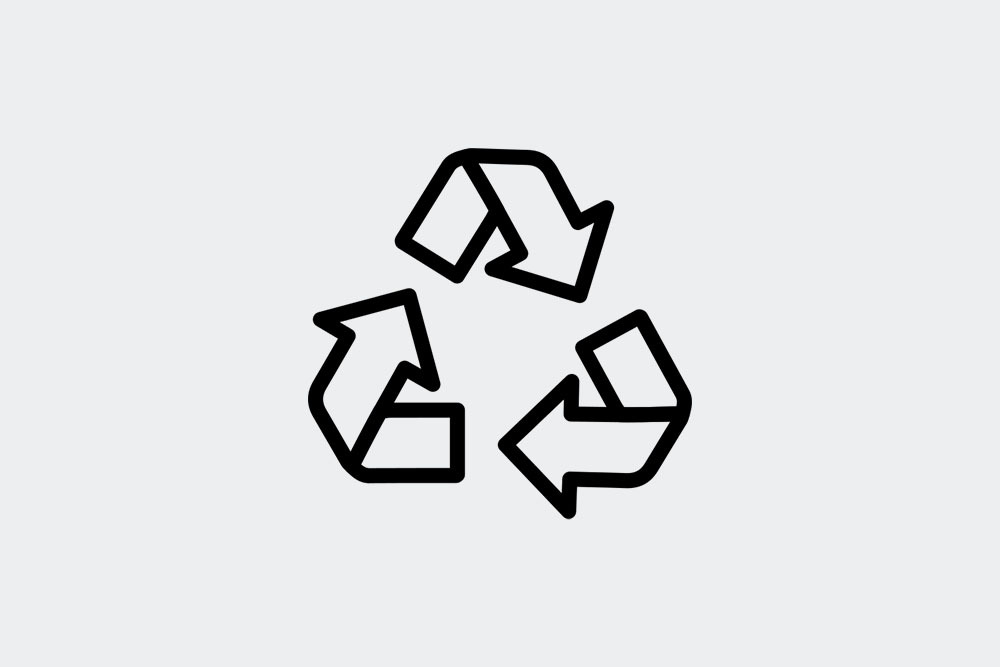
Widely Recycled
This symbol is also common. It signifies that most (about 75%) of local UK authorities will collect the material for recycling.
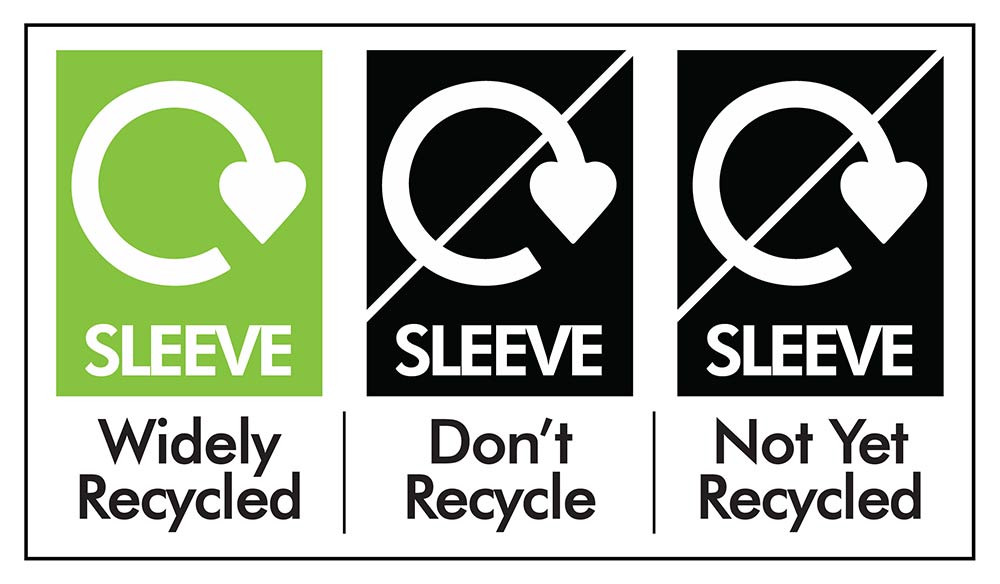
Don’t Recycle
The ‘Don’t Recycle’ symbol will be shown if less than 50% of local UK authorities collect specific packaging material.
Recycle – Rinse
This label lets you know that the packaging can be recycled but must be rinsed first. Rinsing removes any residual food traces that could contaminate other materials. Drink cartons, tins and yoghurt containers often have this label.
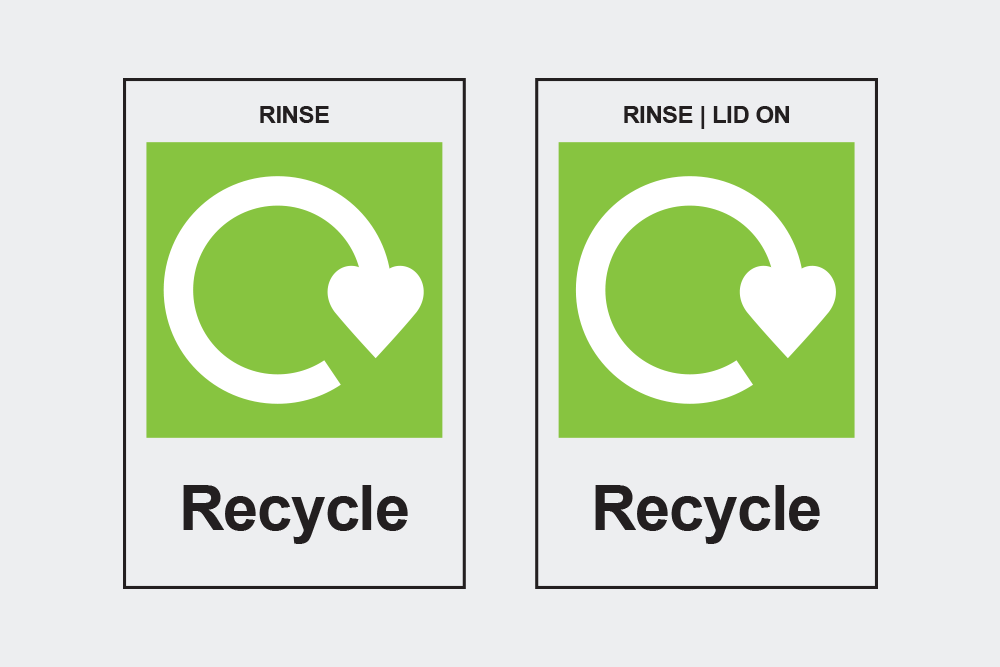
Recycle – Rinse, Lid On
This one works just like the Recycle–Rinse label, except it lets you know that you must put the lid back on the packaging before it can be recycled. Some packaging lids are so small they fall through the machinery at recycling plants, so they must be tightly put on before being recycled.
The Green Dot
The Green Dot isn’t always green and has nothing to do with whether the material is recyclable. Confusing, yes? It signifies that the product’s manufacturer has donated money towards recycling projects in the UK or elsewhere.
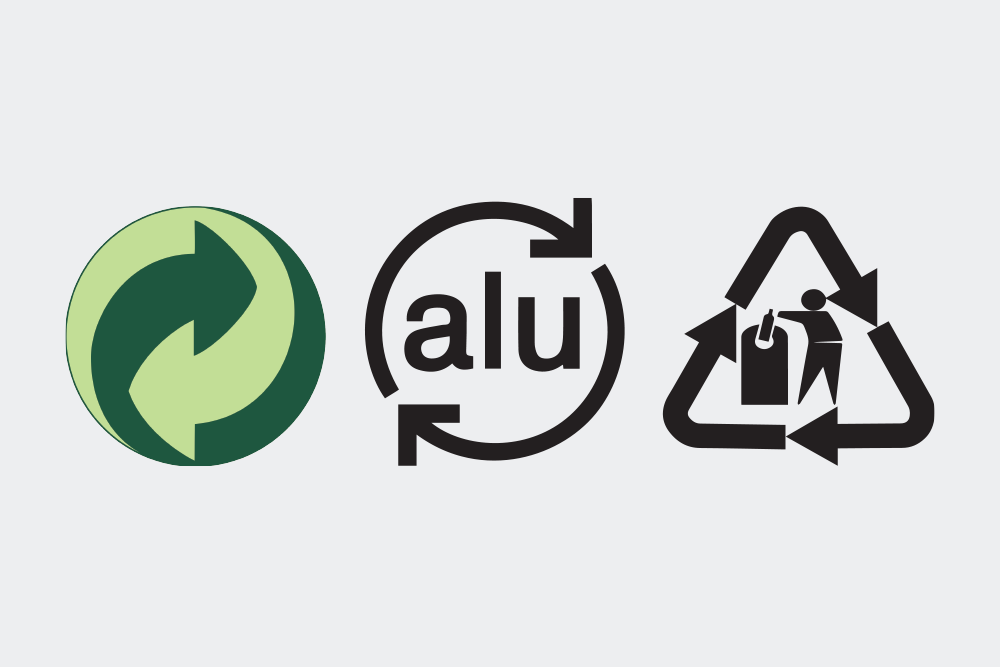
Aluminium
Not surprisingly, you’ll find the aluminium symbol on aluminium packaging, usually cans. You recycle these in aluminium or mixed metal recycling bins.
Glass
Again, this one means just what it says. Glass packaging like bottles or jars must be separated into different colours before recycling.
Waste Electricals
The pictogram of a wheelie bin with a cross signifies that this electrical product cannot be thrown into a recycling bin. It must be recycled at a retail outlet or a designated recycling centre.
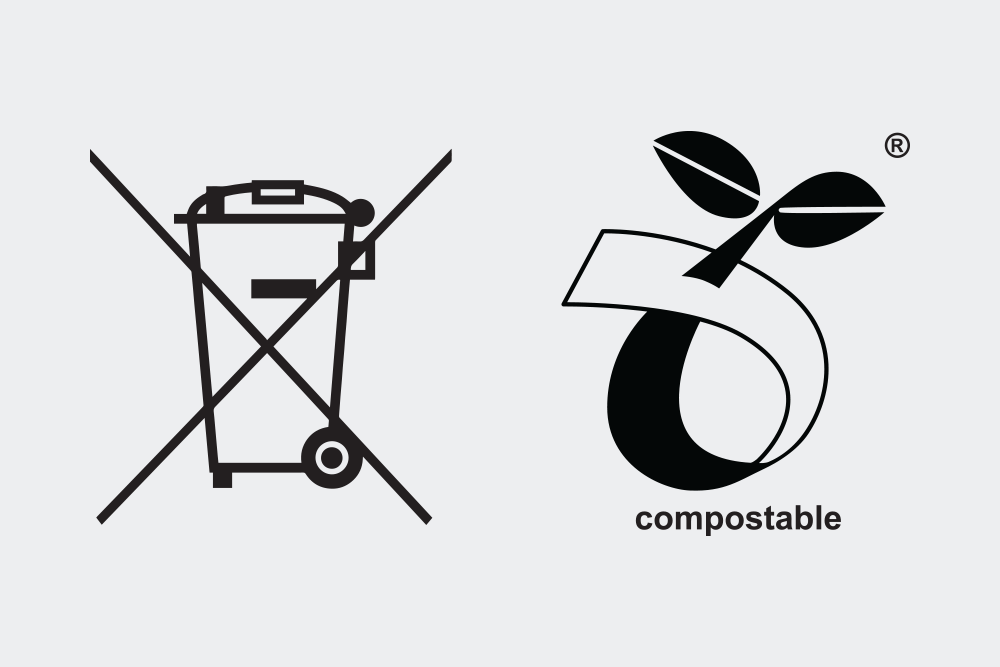
Compostable Packaging
Any packaging with the Compostable Packaging symbol must be placed with green or garden waste for recycling. It cannot be put with other plastic materials that are non-compostable.
Recycle with Bags at Large Supermarkets – Don’t Recycle at Home
Plastic bags that contain fruit, bread, or other foodstuffs often have this label. It means you can’t put this material out for recycling collection at home. It has to be taken to specific recycling points in supermarkets.
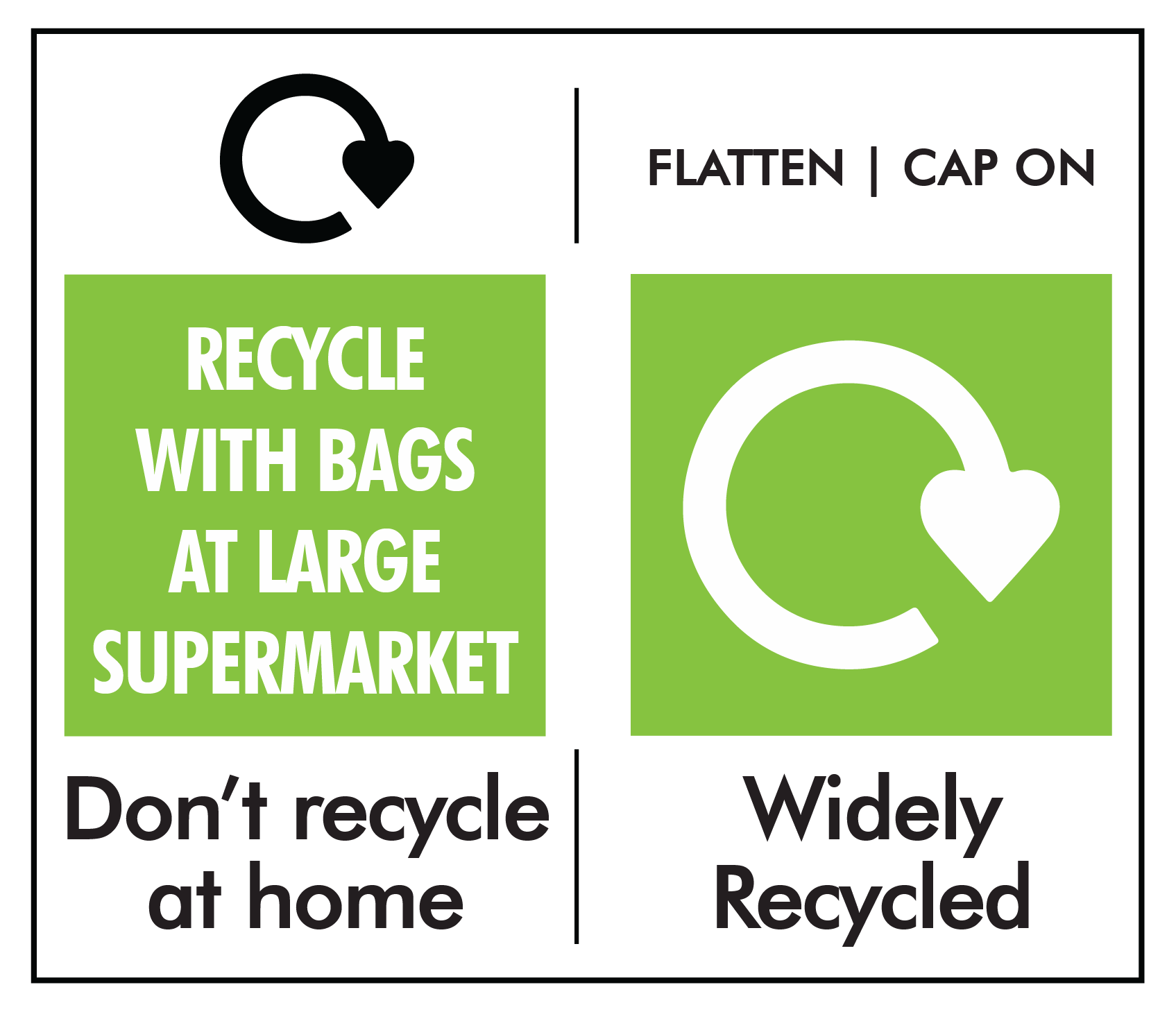
Recycle - Flatten, Lid On
Another pushy symbol that requires you to take some action before recycling. In this case, take the lid off, flatten the packaging, put the lid back on, and it’s good to go.
Recycle – Bottle Cap on. Don’t Recycle – Remove Sleeve
This label wants you to put some effort in before the material is collected for recycling. Take the sleeve off the bottle and dispose of it separately. You can then replace the bottle cap and put the bottle in for recycling.
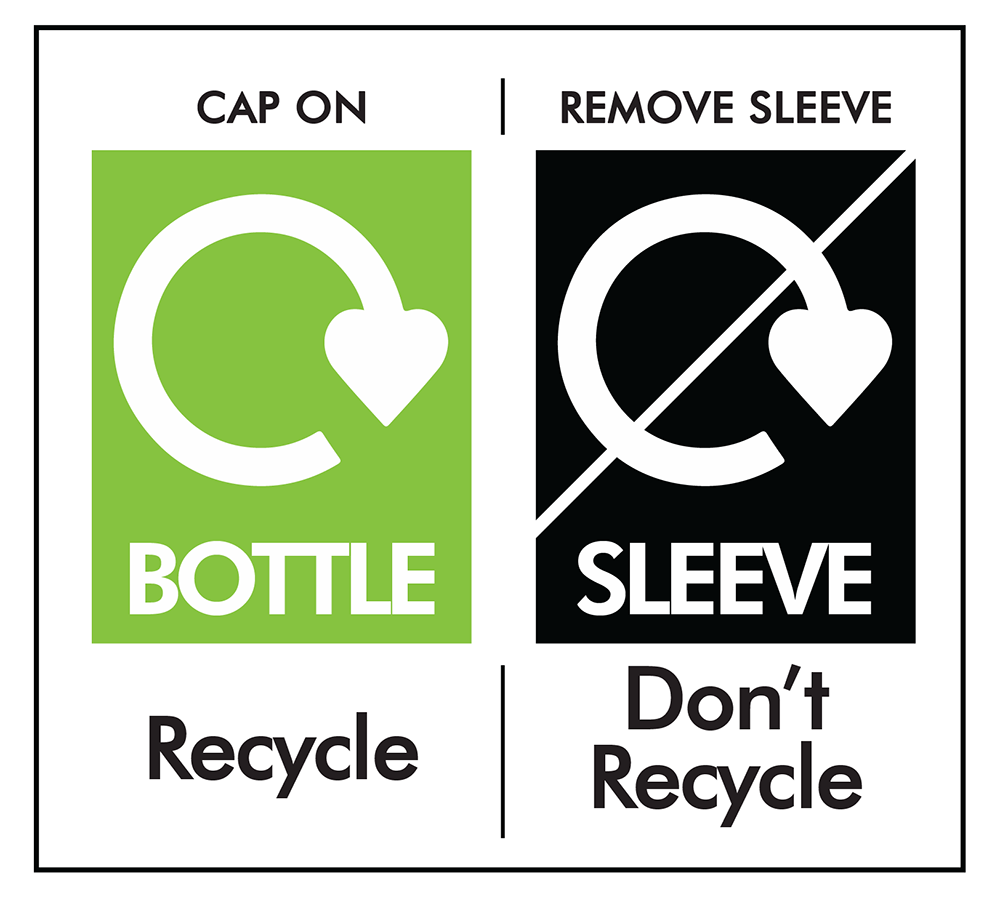
Recycle Now
The Recycle Now symbol informs you that the packaging is recyclable. This symbol aims to encourage people to recycle more often.
Check Locally
Only some local authorities can collect packaging with the ‘Check Locally’ symbol. You’ll need to check if your local authority will accept the material for recycling.
Is Knowing How to Recycle Really That Important?
On average, one kilo of waste is generated per person in the UK daily. That’s more than 413 kilograms of waste per person every year! According to recent data from the UK government, we are literally more than quadrupling our body weight in rubbish.
As more UK government research shows, the UK generates over 40.4 million tonnes of commercial and industrial waste annually. Unfortunately, only 63.2% of this waste is recycled.
There are good reasons why all business owners in the UK should make every effort to recycle as much of their business waste as possible, including:
- It’s good for the environment
- Recycling helps to reduce the number of resources we extract and use
- It lowers CO2 emissions, which helps slow the rate of climate change
Then, there are some legal reasons why business owners must manage waste responsibly. The Environmental Protection Act 1990 and the Environment Act 1995 place a legal obligation on all business owners in the UK to minimise the amount of commercial waste that goes to landfills. Breaching these laws is a criminal act and can lead to significant fines and/or imprisonment.
Where You Can Learn More About Waste Management
Proper handling of waste materials is a big responsibility for business owners. You need to know how to separate waste properly, what can and can’t be recycled, and how to dispose of waste safely.
Make sure you do the right thing with your business rubbish. Sign up for our Waste Management Training today.
Working together, we can ramp up the recycling rate in the UK, and all do our bit for Mother Nature.




















































































































































































































































































































































































































































































































































































































































































































































